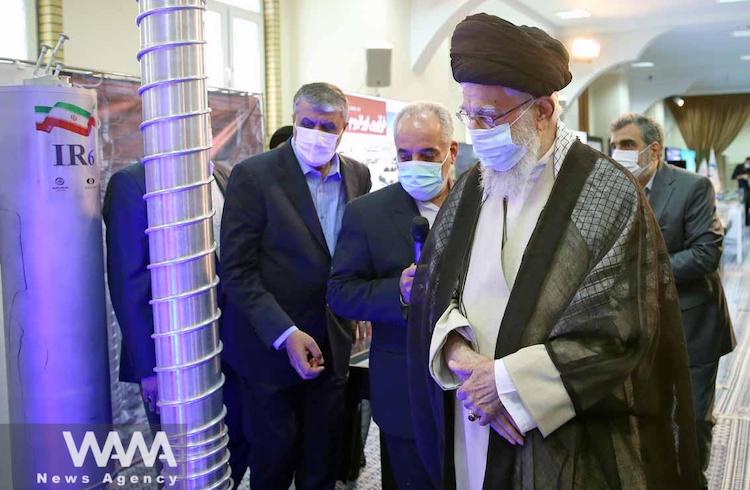By Kelsey Davenport
The author is Director for Nonproliferation Policy at the Arms Control Association (ACA). The following text was published in their P4+1 and Iran Nuclear Deal Alert news digest for June 2023.
WASHINGTON, DC, 15 June 2023 (IDN) — Recent comments from U.S. and Iranian officials suggest that the space for negotiations over Iran’s nuclear program may be opening back up after talks broke down in August, but the two sides denied recent reports that an interim nuclear deal is on the table.
Iranian Foreign Ministry spokesperson Nasser Kanaani confirmed a June 9 Axios report that the United States and Iran held indirect talks in Oman in May. Kanaani told reporters that Iran conveyed messages to the United States regarding the lifting of sanctions. He also said Tehran remains focused on restoring the 2015 nuclear deal, known as the Joint Comprehensive Plan of Action (JCPOA), and is not discussing interim arrangements.
State Department spokesperson Vedant Patel also dismissed reports of an interim deal, saying June 9 that such an agreement is “not on the agenda.” The agreement to restore the JCPOA under discussion in August, which Iran prefers, is also off the table for the United States given Iran’s nuclear advances and heightened antipathy toward Tehran for its support for Russia’s war in Ukraine and brutal crackdown on domestic protesters.
However, a senior U.S. official told The Diplomatic June 12 that the Biden administration has made clear to Iran that the United States is “interested in a de-escalatory path” and wants to see if Iran is “prepared to do that.” If Tehran is willing to take steps that demonstrate an openness to “change the current trajectory” that could “open up different possibilities,” the official said.
The Biden administration has also communicated to Iran that certain actions “could lead us to a very dangerous spot,” likely referring to U.S. redlines regarding Iran’s advancing nuclear program, the official said.
While Iranian officials continue to emphasize that Tehran’s focus is on restoring the JCPOA, recent comments from the country’s Supreme Leader, Ayatollah Ali Khamenei, suggest that other diplomatic approaches may be possible.
In a rare visit to the Atomic Energy Organization of Iran (AEOI) June 11, Khamenei said that signing “agreements in some areas” is “not a problem” so long as the country’s nuclear infrastructure remains intact and the agreements respect a December 2020 nuclear law. The law lays out certain requirements for the AEOI to advance Iran’s nuclear program absent sanctions relief.
It is not clear what Khamenei means by saying Iran’s “nuclear infrastructure must not be changed.” Since Iran began violating the JCPOA in response to the U.S. withdrawal from the deal and reimposition of sanctions, Iran significantly expanded its nuclear program. During negotiations on the JPCOA, the Iranian team pressed to retain all of Iran’s nuclear facilities but was open to repurposing certain sites and agreed to dismantle the majority of the country’s centrifuges. The JCPOA, for instance, required Iran to convert the Fordow enrichment plant to a nuclear research facility focused on producing isotopes.
Khamenei reiterated in the June 11 statement that Iran has no interest in pursuing nuclear weapons and that the country’s “Islamic principles” prohibit it. He suggested that the West is focused on stopping Iran’s nuclear program to prevent the country from making “scientific progress.” He said that “if Iran wanted to build nuclear weapons, we would have done so” and the West would not have been able to stop it.
He also recommended that the AEOI maintain “cooperation and communication” with the IAEA “within the framework of the safeguards agreement.” Iran, however, has dragged out an IAEA investigation into past nuclear activities that should have been declared to the agency and still has not provided technically credible answers for the presence of uranium at two of the four sites under investigation. Iran also has current safeguards issues that must be addressed. The IAEA noted in its May 31 report that Tehran has not yet clarified a material accountancy discrepancy related to Iran’s work with uranium metal.
The day after Khamenei’s remarks, Iran’s lead negotiator Ali Baqeri-Khani met with political directors from the E3 countries (France, Germany, and the United Kingdom) in Abu Dhabi to discuss several issues, including the nuclear program. A similar meeting took place in Oslo in March.
The Wall Street Journal reported June 14 that Baqeri-Khani also engaged in proximity talks with the United States in Oman in March and discussed the nuclear program. The United States and the E3 are looking for Iran to take steps such as halting accumulation of uranium enriched to 60 percent and the installation of additional advanced centrifuges to deescalate, according to The Wall Street Joural report. Iran seeks the unfreezing of assets held abroad due to U.S. sanctions. [IDN-InDepthNews]
Photo: Iran’s Supreme Leader Ayatollah Ali Khamenei visits the Iranian centrifuges in Tehran, Iran on 11 June 2023. Source: Office of the Iranian Supreme Leader/WANA (West Asia News Agency)
Visit us on Facebook and Twitter.
IDN is the flagship agency of the Non-profit International Press Syndicate.
We believe in the free flow of information. Republish our articles for free, online or in print, under Creative Commons Attribution 4.0 International, except for republished articles with permission.

